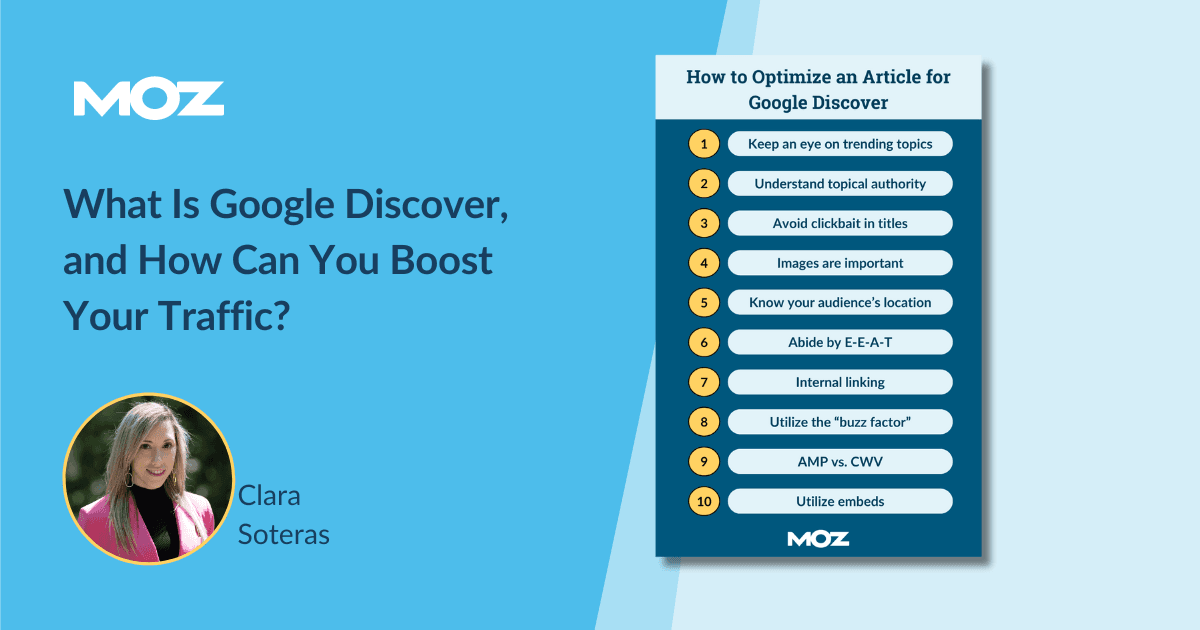2. Understand topical authority: Keywords vs. entities
Google has been talking about topical authority for a long time, and in Discover, it is completely relevant. Traditional SEO includes the use of keywords to position your web pages for a specific search, but the content strategy in Discover should be based on entities, i.e., concepts, characters, places, topics… everything that a Knowledge Panel can have. It is necessary to know in which topics Google considers we have more authority and relevance in order to talk about them.
3. Avoid clickbait in titles
“Use page titles that capture the essence of the content, but in a non-clickbait fashion.” This is the opening sentence that describes how headlines should be in Google’s documentation. I always say that it is not about using clickbait but a bit of creativity from the journalist. Generating a good H1 is also part of the job of content creation.
Google also adds:
“Avoid tactics to artificially inflate engagement by using misleading or exaggerated details in preview content (title, snippets, or images) to increase appeal, or by withholding crucial information required to understand what the content is about.”
“Avoid tactics that manipulate appeal by catering to morbid curiosity, titillation, or outrage.
Provide content that’s timely for current interests, tells a story well, or provides unique insights.”
Do you think this information fits with what you see every day on Google Discover? I would reckon there were many sites that did not comply with this and received a lot of traffic from Discover.
With the last core updates in 2023, Google was extremely hard on news sites and some niches with content focused on Discover, directly affecting E-E-A-T. The impact was so severe that many publishers shared drastic drops in Search Console with expert Lily Ray, who wrote an article with data from more than 150 publishers.
4. Images are important
They say that a picture is worth a thousand words. If you look at your Discover feed, you’ll see most of the images catch your attention. They are detailed shots of delicious food, close-ups of a person’s face showing emotions, or even images where the character in question does not appear, such as “the new manicure that will be a trend in 2024,” persuading you to click.
Google’s documentation recommends adding “high-quality images in your content, especially large images that are more likely to generate visits from Discover” and notes important technical requirements such as images needing to be “at least 1200 px wide and enabled by the max-image-preview:large setting.” You may also have found that media outlets create their own collages in order to have images that stand out from competitors.
